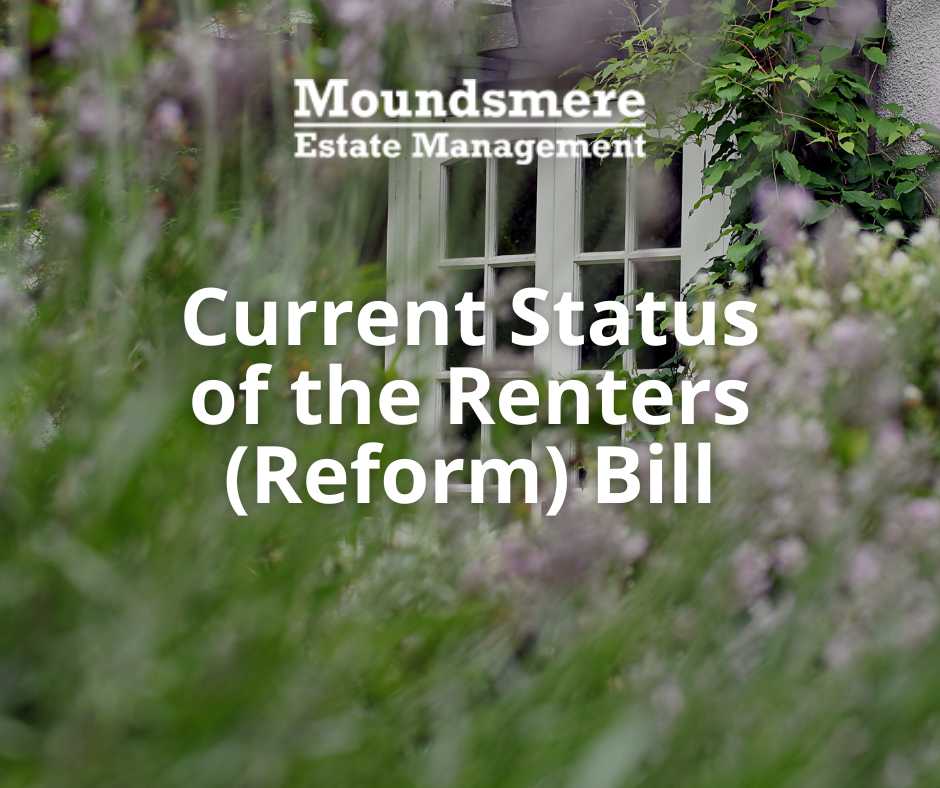
- January 9, 2024
- Landlord News, Property, Rural Business, Tenant News
Current Status of The Renters (Reform) Bill
The Renters (Reform) Bill was introduced to the House of Commons on 17 May 2023 and sets out the UK Government’s plans to deliver on the Conservative Party’s manifesto commitment to reform the private rented sector in England. The objective of the Bill is to ensure renters have access to a secure and decent home and that landlords retain the confidence to repossess their properties where they need to.
The Bill will:
- Abolish section 21 ‘no fault’ evictions and reform tenancy agreements where all assured tenancies are periodic.
- Introduce more possession grounds where tenants are at fault, for example in cases of antisocial behaviour and repeat rent arrears.
- Provide stronger protections against retaliatory evictions.
- Introduce a new Ombudsman that all private landlords must join.
- Introduce a new Property Portal including a database of residential landlords and privately rented properties in England.
- Give tenants the right to request a pet in their property, which the landlord must consider and cannot unreasonably refuse.
There is huge demand for rented property across the country, so it is vital that legislative change is fit for purpose and does not cause landlords to leave the sector or deter new entrants from providing much-needed homes to rent.
To improve the UK Government’s proposals and make the PRS fairer, further reform is needed in the following areas:
- Fixed term. A tenant should be able to agree to a fixed-term tenancy where it is mutually beneficial for both parties.
- More mandatory grounds. To ensure landlords have the protections they need, there must be more mandatory grounds i.e. breach of contract, persistent late payment of rent, acquiring a tenancy by using false identification, damage over the amount of the deposit and a tenant refusing access to property should all be mandatory grounds under the plans to abolish Section 21 and reform Section 8.
- Court Reforms. More details and clarity are needed on how the UK Government plan to digitise the court system and improve access to justice.
- Qualification and regulation of property agents. Through introducing minimum standards to work in the sector and statutory rules to ensure letting agents are suitably qualified, this will drive up standards and help deliver a fairer private rented sector for tenants and landlords.
Update on the Renters (Reform) Bill
The Second Reading took place on 23 October 2023.
The debate revealed a number of key areas which need more attention:
- Judicial reform – Little detail has been announced on what exactly needs to be in place before the Section 21 ban will be enforced, or how the reforms will be carried out.
- Notice periods – There was support for longer notice periods, with them being extended from two months to four months, to give tenants time to find alternative accommodation and reduce the number of cases where Councils are required to provide temporary housing.
- Anti-social behaviour (ASB) – Clarity is required on what constitutes ASB.
- Longer ban on reletting – There was support for extending the prohibition on reletting after a Section 8 eviction due to a change of landlord circumstances to 12 months to ensure this was not used as an alternative to Section 21.
- Economic evictions – When rent is raised beyond the level a tenant can afford in order to force them to leave a property. It was suggested to strengthen the law to ensure landlords can only increase rents once a year and strengthen the mechanism for tenants to challenge excessive rent hikes.
Next step: the Report Stage.
For information on how this affects you as a tenant or landlord, please get in touch.
